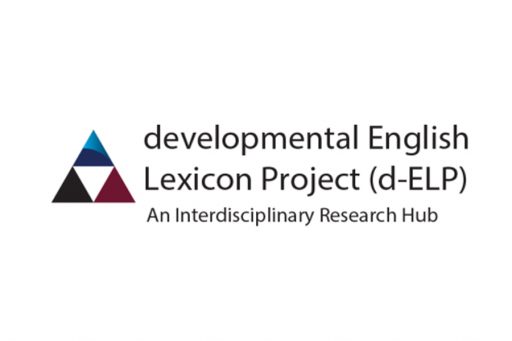
Parents, teachers and students looking for a little bit of extra help on building elementary-level reading skills will now have some extra help from a new online resource launched by researchers at the Florida Center for Reading Research (FCRR).

- The developmental English Lexicon Project (d-ELP) features word reading data on the most frequently printed English words for children in grades 1 through 5.
FCRR, based at Florida State University, has launched an open-access database called the developmental English Lexicon Project (d-ELP) that features word reading data on 9,961 of the most frequently printed English words for children in grades 1 through 5.
“English is a particularly hard language to learn,” said FCRR Director Emeritus Donald Compton, who led the research. “Some words are simply harder for children to learn to read than others, but we don’t have a complete understanding of all the factors that contribute to this. We hope this database will be a resource for educators who are working to help children learn to read.”
This comprehensive resource is designed to support a diverse range of stakeholders — educators, researchers, curriculum developers and policymakers — dedicated to improving literacy opportunities and outcomes for children. The database features continuous Item Response Theory (IRT)-based estimates of word reading difficulty, a host of accompanying word characteristics and extensive raw trial-level data.
Teachers or caregivers, for example, would be able to access lists of words that include similar characteristics such as vowel combinations or sound blends in order to create spelling lists or other instructional materials.
Data were collected from 1,907 children across multiple U.S. sites, each reading lists of 250 to 500 words tailored to their reading proficiency. These lists encompassed a wide range of word difficulties, with particular emphasis on words appropriate to each child’s reading level.
Why This Matters
Learning to read in English presents unique challenges due to the language’s complex orthography and varied spelling patterns. Even with well-developed decoding strategies, some words — such as “suede” and “yacht” — pose difficulty for young readers. Until now, educators and researchers have lacked a comprehensive resource to understand the many factors contributing to word reading difficulty in children.
The d-ELP database addresses this gap by providing a searchable, data-driven tool for exploring word-level reading challenges. This resource will facilitate teachers’ ability to target instruction to a child’s developmental level, support sequenced instruction on word difficulty, develop instruction that leads to greater generalization of word reading and decoding skills, better understand student needs and accelerate research-to-practice translation.
Access and Availability
The d-ELP database is now available for public, noncommercial use. Users can search for word difficulty ratings and associated word-level statistics through an intuitive online search engine.
Visit the d-ELP website for more information and to register.



